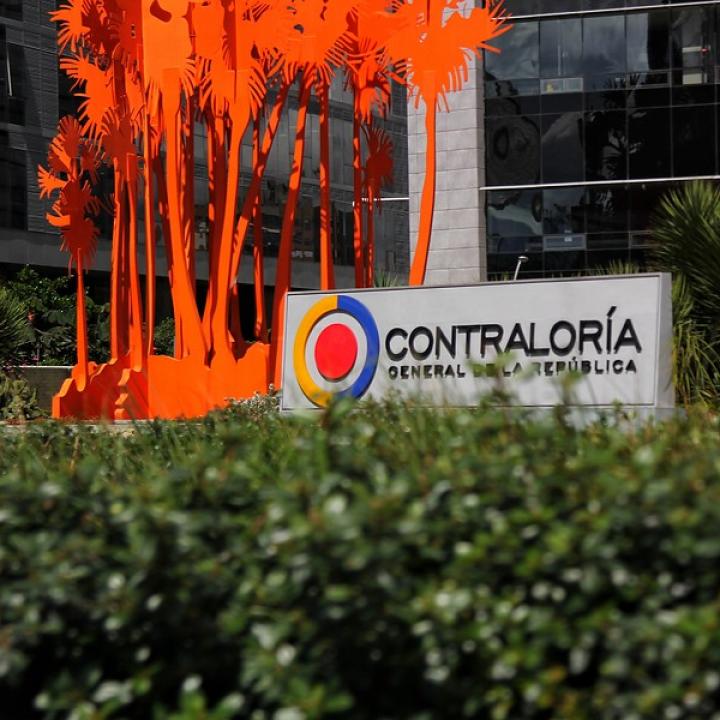After two years suspended due to the pandemic, the event for the 28th anniversary of the attack against the Asociación Mutual Israelita Argentina (AMIA) returned to the streets on July 18, under the slogan: “Let’s go back to Pasteur.” Thousands of people gathered in the streets of Buenos Aires to demand justice and honor the victims (85 dead and more than 300 injured). Associations from all over the world, and especially those from Chile, participated from a distance from the event. Among the attendees was the Brazilian constitutional lawyer and OAS Commissioner for monitoring and combating anti-Semitism, Fernando Lottenberg.
Lottenberg is a recognized voice in the world and especially in the Americas as a defender of democracy and human rights. He has been president of the Federation of Jewish Communities of Brazil and is currently a member of the Board of Trustees of the Institute of Latin American and Latino Affairs of the American Jewish Committee.
His role at the OAS is to promote efforts in the Western Hemisphere to combat discrimination and hate.
For this reason, he received with concern the news that the Chilean newspaper El Mercurio, through its Readers’ Club, promoted these figures. Before the page was taken down, the description stated that “SS Untersturmführer replicas can be purchased for $2,690 for Book Club members and $2,990 for the general public. Stock available: 129”.
In this regard, Fernando Lottenberg says: “It is something shocking. You can’t imagine anyone having an interest in divulging this kind of thing. What is most striking is that it is not the first time that this communication group has published similar things. It already happened with a full page profile of Herman Göring (founder of the Gestapo and successor of Hitler) a few months ago (October 2021, as it was 75 years since his death) in El Mercurio. The worrying thing is that the article did not bring a criticism or historical learning. It was very normal.”
He points out that precisely what puts the alert is that this type of behavior and publications be normalized. The same media outlet had already published under the title “The peace mission of the Nazi Rudolf Hess” a one-page report on the trip of the hierarch to Scotland to negotiate peace with the United Kingdom.
“Similarly, a few weeks ago, Las Últimas Noticias, which belongs to the same group, carried an advertisement with the stereotype of the Jew with money. It is striking, and it is something very worrying, that this type of thing is done so lightly, without taking into account what it can cause. It hurts the sensibilities of many people. There are survivors among us, there are descendants of victims of the Holocaust. I cannot imagine what it is like for a person to see something like this in a newspaper in their city, in their country”, adds the Commissioner.
– Have you contacted the management of the media?
-Not yet. As long as it is necessary, I will do it. I went to the web and they had removed it. I will keep an eye on how things develop to see if stronger intervention is necessary.

Education and anti-hate legislation
He explains that the nature of anti-Semitism today is identified in three currents: “There is the traditional anti-Semitism that we all know, that of the extreme right, there the case of the El Mercurio figurine may fit. We must bear in mind that our region was part of the rat linethe route of the Nazi escapees from Germany, from Austria. Several Nazi hierarchs came to hide in Brazil, Chile, Argentina, Bolivia. Imagine that in the 1930s and 1940s the Nazi party in Brazil was the largest outside the Reich. And a component is added with the presence of the courts of the Inquisition, which were here for more than three centuries, and that contributes. We also have an anti-Semitism that comes from the left with a mask of anti-Zionism, which holds the communities responsible for what is happening in the Middle East. The demonization and/or delegitimization of the State of Israel that extends to the Jewish communities as if they were responsible for what happens there. And the third vertex of this phenomenon is Islamic fundamentalism. In Argentina they had the sad experience of the embassy and AMIA, in Europe the attacks in Toulouse, Paris or Brussels. These three currents converge in this anti-Semitic movement, which is why it is necessary to create this function in governments and in international organizations.”
—Why does this aversion towards the Jews persist in the 21st century?
“There is no objective reason. Jews are very few in the world, about 14 million, but what the extreme left, right and Islamic have in common is the conspiracy theory. They point out that the Jews have control —of the press, the banks, the Covid…— they say that they are manufacturing the vaccines to earn money. There are many myths: that the Jews poison wells, they killed Christian children and today they kill Palestinian children. The myths are recycled with a new face to adapt to the times, but it is something that remains. Now with social networks this is exacerbated.
—How do you combat anti-Semitism?
—I have many things to do during my mandate. One would be the adoption by the countries of the region of the IHRA (International Holocaust Remembrance Association) definition of anti-Semitism. It is very simple, with it people can identify when it comes to anti-Semitism with practical examples. Several countries in the region have already adopted this definition. When I was in Chile, in December, I discussed it with the Undersecretary of Human Rights to promote this, but so far I have no news that Chile has adopted it. Another thing is to educate the new generations about the Holocaust, the persecution of the Jews and other minorities. In addition, countries should adopt stronger legislation to combat hate speech, racism, discrimination. And this must include indigenous people, Afro-descendants, dissident communities, any threatened minority. A balance of education and legislation can be a way to lessen the attack, because there will always be racist and anti-Semitic people.
He highlights that UNESCO has an education site with the Jewish consortium that works every time someone publishes something about anti-Semitism, “so the networks recommend the reader to go to the site to have quality information. This is a concrete action of education”, says Lottenberg.


















